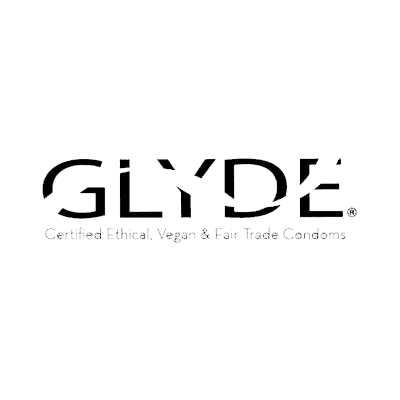Introduction: Why “Anal Lube” Matters
Anal play has become an increasingly popular topic in sexual wellness discussions, and for good reason. This realm of intimacy can open up entirely new sensations and forms of pleasure for people of all genders. However, to ensure comfort and safety, it’s crucial to choose the right products—particularly a high-quality lubricant. Because the anus does not self-lubricate like the vagina, skipping or skimping on lube could lead to discomfort, pain, and even microtears.
In this expanded, in-depth guide, we’ll dive into everything you need to know about anal lube, from why it’s essential and what kinds are available, to how to apply it and address frequently asked questions such as “Can you use olive oil as anal lube?” and “Is it bad to use moisturizer as anal lube?” By the end, you’ll have a well-rounded understanding of how to enjoy safe, smooth, and pleasurable backdoor experiences—no matter your level of expertise.
Table of Contents
- What Is Anal Lube & Why Is It Important?
- Types of Anal Lubes: Water-Based, Silicone, Hybrid & More
- Understanding Best Anal Lube Properties: Thickness, Sensation & Ingredients
- How Much Lube to Use for Anal & Expert Application Tips
- Addressing Common Myths & User Questions
- Do You Need Lube for Anal?
- Can You Use Olive Oil as Anal Lube?
- Can You Use Vaseline as Anal Lube?
- Is Vaseline Good for Anal Lube?
- How to Do Anal Without Lube? (Spoiler: Not Recommended)
- How Do Pornstars Do Anal with No Lube? (Debunking the Fantasy)
- Can I Use Anal Eaze Insertz Lube on My Penis?
- Is It Bad to Use Moisturizer as Anal Lube?
- DIY & Homemade Anal Lube: Is It Safe?
- Choosing the Best Anal Lube for Your Body & Preferences
- Preparing for Anal Play: A Step-by-Step Lube-Centric Guide
- Anal Lube & Toy Compatibility: Key Considerations
- Advanced Tips: Warmers, Flavors, & Desensitizing Lubes
- Final Thoughts & Safe Play Reminders
1. What Is Anal Lube & Why Is It Important?
Anal lube refers to any type of personal lubricant specifically formulated or well-suited for backdoor play—be it anal intercourse, anal fingering, or the use of butt plugs and prostate massagers. While all forms of sexual activity can benefit from lubrication, it’s especially crucial for anal contact because the rectum lacks natural lubrication.
Essential Benefits of Anal Lube
- Reduced Friction: Without lubrication, the friction from penetration can lead to discomfort or even microtears. This is true for everyone, regardless of gender.
- Enhanced Pleasure: Proper lubrication can heighten sensitivity and intensify enjoyable sensations by allowing more glide and less “drag.”
- Injury Prevention: Because anal tissue is delicate, dryness can cause painful tears, which may become infected or take longer to heal. Good lube is your best defense.
- Confidence Boost: Knowing you’ve taken precautions to ensure comfort and safety can help you relax, which in turn supports a more satisfying experience.
- Improved Communication: Introducing lube to the conversation around anal play encourages openness and discussion about boundaries, preferences, and concerns.
In a nutshell, using anal lube is non-negotiable for most people who engage in backdoor play. It transforms an otherwise challenging situation into an opportunity for exploration and intimacy, all while minimizing potential health risks.
2. Types of Anal Lubes: Water-Based, Silicone, Hybrid & More
Thanks to the ever-expanding adult product market, anal lube options now abound. Understanding the basic categories will help you choose the formula that aligns with your goals, body sensitivities, and planned activities.
A. Water-Based Anal Lubes
Water based lubricants are among the most common and versatile. They are typically made from water, glycerin or glycerin substitutes, and thickening agents. Some also include aloe vera or other soothing extracts.
Pros: Easy to wash off, generally less expensive, compatible with latex condoms and virtually all sex toy materials. Good for beginners who want a no-fuss approach.
Cons: Dries out faster than silicone-based lubes, requiring more frequent reapplication. Some formulas may become tacky or leave residue.
Ideal For: Those who don’t mind reapplying lube, using silicone toys, or are new to anal exploration.
B. Silicone-Based Anal Lubes
Silicone lubes use silicone polymers that don’t evaporate or absorb into the skin as quickly as water-based versions.
Pros: Long-lasting slickness, excellent for longer sessions, less friction even after extended play, and doesn’t need frequent reapplication.
Cons: Can degrade certain silicone toys, making them sticky or weakened. Also can be harder to wash off (soap and water typically necessary). Not always cheap.
Ideal For: Extended anal play or shower sex scenarios, and those seeking maximum lubrication without consistent reapplication.
C. Hybrid Anal Lubes
These hybrid lube combine water and silicone, aiming to offer the best of both worlds.
Pros: More cushiony than standard water-based lubes, but still somewhat easier to clean up than silicone-only formulas.
Cons: May still be incompatible with certain silicone toys, especially lower-quality ones. Can be pricier.
Ideal For: Users who want a balance between easy clean-up and extended slickness.
D. Oil-Based Anal Lubes
While less mainstream for anal play, some people are curious about oils such as coconut oil, mineral oil, or specialized blends.
Pros: Very slick, hydrating for some skin types.
Cons: Can break down latex condoms, stain fabrics, and possibly trap bacteria. Not typically recommended for novices.
Ideal For: Those comfortable with the trade-offs of oil-based lubes and using non-latex condoms or no condoms at all. Typically better for external anal massage than full penetration.
E. Numbing/Desensitizing Anal Lubes
These contain mild anesthetics (e.g., benzocaine) aimed at reducing pain or discomfort.
Pros: Can help those who experience intense discomfort during anal penetration.
Cons: Numbing can mask important pain signals, increasing the risk of overexertion or injury. Always use with caution.
Ideal For: Advanced users who fully understand the risks and maintain constant communication with their partner.
3. Understanding Best Anal Lube Properties: Thickness, Sensation & Ingredients
Choosing the best anal lube isn’t just about whether it’s water-based or silicone-based. Other factors, such as thickness, sensation (warming, cooling, etc.), and ingredient lists, can dramatically change your experience.
A. Thickness & Viscosity
Anal-specific lubes often have a thicker consistency, which helps them stay in place longer. Thicker lubes cushion delicate anal tissues better than thinner lubricants, reducing the chance of friction-related injuries.
Pros of Thick Anal Lubes: Less drip, more cushion, stays where you apply it.
Cons of Thick Anal Lubes: Some people find very thick lubes difficult to spread; reapplication might feel cumbersome.
B. Specialty Sensations: Warming & Cooling
Some brands include warming agents (like capsicum or menthol derivatives) or cooling agents (like peppermint oil) to enhance sensation.
Warming: Can increase blood flow, making the area more sensitive. However, some folks find warming formulas uncomfortable if they have sensitive skin.
Cooling: Tends to create a tingling, fresh sensation. Again, it may cause irritation if you have allergies or sensitivities.
C. Ingredient Watchouts
Glycerin: Often found in water-based lubes, but can cause yeast infections in those prone to them.
Parabens: Controversial preservatives that some users choose to avoid.
Fragrances/Dyes: May irritate especially sensitive tissues.
Reading labels carefully is essential. If you have known skin allergies or are prone to infections, look for “paraben-free,” “glycerin-free,” or “fragrance-free” on the packaging.
D. pH Balance
While more of a concern for vaginal lubes, some anal lubes aim for a neutral pH to minimize irritation. This can be beneficial for users with highly sensitive anal regions.
4. How Much Lube to Use for Anal & Expert Application Tips
You might wonder: How much lube to use for anal? The short answer: As much as you need—typically more than you’d use for vaginal sex.
A. The Generous Approach
In general, you should apply a generous amount of lube to your toy (or partner’s penis) and around the external anal area. From there, consider using a finger or lube applicator to place a small amount just inside the rectum.
Step 1: Dab a blob of lube onto your fingers.
Step 2: Gently massage around the external sphincter.
Step 3: If comfortable, insert a lubricated fingertip or an applicator slightly.
Step 4: Reapply whenever friction becomes noticeable.
B. Reapplication Matters
No matter the formula—water-based, silicone, or hybrid—be prepared to reapply lube at least once if you’re engaging in extended anal penetration. Water-based lubes generally require more frequent top-offs than silicone lubes.
C. Warm-Up Exercises
Before diving into penetration, some people find it helpful to do anal warm-up exercises:
Finger Foreplay: Gently insert one or two fingers with lube to help the muscles relax.
Small Plugs: Start with a smaller butt plug before attempting larger toys or penises. This gradual approach eases the sphincter and allows for a more comfortable introduction to anal play.
Communication: Encourage your partner to say if something feels too tight, too painful, or if more lube is needed.
D. Lube & Comfort
If you or your partner starts to feel discomfort, it’s a sign you either need more lubrication, a slower pace, or a break. Pain is your body’s way of signaling you to reassess what’s happening and make adjustments.

5. Addressing Common Myths & User Questions
The adult industry is flooded with misinformation about anal lube, from do-it-yourself alternatives to misguided claims about “no lube anal.” Let’s set the record straight by answering some frequently asked questions.
5.1 Do You Need Lube for Anal?
Yes—full stop. While vaginal lubrication is partially handled by the body’s natural fluids, the anal canal doesn’t self-lubricate. Relying on the body’s natural secretions or saliva alone can lead to unnecessary friction, discomfort, or injury. Anyone who’s tried “no lube anal” or minimal-lube anal scenarios can attest to the difference that a quality lubricant makes.
5.2 Can You Use Olive Oil as Anal Lube?
Olive oil is a popular household item, so it’s natural for people to wonder if they can use it as an alternative lube. Technically, yes, you can, but it’s not ideal. Here’s why:
Condom Compatibility: Oil-based substances break down latex condoms, making them prone to tearing.
Staining & Cleanup: Oils can leave stubborn stains on bedding and clothing, and require more effort to clean off your skin.
Potential for Bacterial Growth: Oils can trap bacteria and lead to infections if they linger in the body.
If you want an oil-based product, seek out specialized formulas designed specifically for sexual use, ensuring they’re condom-compatible if you rely on latex or polyisoprene protection.
5.3 Can You Use Vaseline as Anal Lube?
Vaseline (petroleum jelly) is thick and has moisturizing properties, which leads many to assume it could be a good anal lube. However, it’s generally discouraged. Petroleum jelly can break down latex condoms, is not water-soluble (making cleanup difficult), and can potentially trap bacteria inside the rectum. While some people may use it in a pinch, it’s best to stick with body-safe lubes made for intimate contact.
5.4 Is Vaseline Good for Anal Lube?
This question is essentially the same as above, and the answer remains no. The thickness of Vaseline might seem appealing for anal penetration, but the downsides—condom breakage, difficult cleanup, and potential bacterial growth—make it a poor choice for regular use. If you’re serious about comfortable backdoor play, invest in a product specifically formulated as an anal lubricant.
5.5 How to Do Anal Without Lube? (Spoiler: Not Recommended!!!!!)
Some internet searches, such as “how to do anal without lube” or “how to do anal with no lube,” reflect the curiosity around skipping lubrication altogether. While a handful of porn scenes or anecdotal stories suggest it’s possible, the reality is far different.
Risk of Tearing: The rectum has delicate tissue. Without lubrication, the chance of microtears skyrockets.
Pain & Long-Term Effects: Even if you can endure an initial sting, repetitive friction could cause lingering discomfort or injury.
Infection Risks: Tears and abrasions create openings for bacteria or other pathogens, increasing the chance of infection.
Always keep a proper anal lube on hand to ensure a pleasant and safe experience.
5.6 How Do Pornstars Do Anal with No Lube? (Debunking the Fantasy)
It’s common to wonder, “How do pornstars do anal with no lube reddit?” or see references to “charlotte sartre anal no lube.” Here’s the insider scoop: the adult industry often uses copious amounts of lubrication off-camera. The final cut of a scene might give the impression it’s happening naturally, but in reality, lubrication is likely applied discreetly between shots. It’s a fantasy that fuels certain narratives, but it’s not a healthy or advisable approach for everyday people.
5.7 Can I Use Anal Eaze Insertz Lube on My Penis?
Brands like Anal Eaze or Insertz sometimes include mild numbing agents or specialized formulas to facilitate painless anal penetration. The question arises whether you can use these lubes on a penis:
Check the Ingredients: If it’s water-based or silicone-based without any harsh numbing agent, using it on the penis might be fine. However, if it has a desensitizing component meant specifically for anal comfort, applying it to the penis could reduce sensations you might actually want to keep.
Communication & Sensation: Some men prefer full sensation and might not enjoy the numbing effects. Others might find some mild desensitizing helpful if they experience sensitivity issues. It’s all about personal preference and checking the label for condom compatibility.
5.8 Is It Bad to Use Moisturizer as Anal Lube?
Many people ask about using household lotions or moisturizers in a pinch. Common concerns include:
Ingredients: Face or body lotions often contain fragrances, alcohol, or other chemicals not intended for internal use.
pH & Irritation: Moisturizers are not formulated with internal tissues in mind, which can lead to irritation or allergic reactions.
Condom Safety: Many lotions have oils or additives that degrade latex.
In short, yes, using typical moisturizers as anal lube can be risky. If you’re in urgent need and have no other choices, ensure it’s an unscented, hypoallergenic lotion that doesn’t contain oils, but ideally, find a proper lubricant instead.
6. DIY & Homemade Anal Lube: Is It Safe?
The trend of do-it-yourself solutions has led some to search for “DIY anal lube” or “homemade anal lube” recipes. These might involve mixing cornstarch and water or using various cooking oils.
Pros
Cost-Effective: Often cheaper than store-bought products.
Potentially Natural: You control the ingredients, which might appeal to those avoiding chemicals.
Cons
Safety Concerns: Without preservatives, homemade mixtures can grow bacteria or mold, especially if stored improperly.
Condom Compatibility: Many homemade lubes contain oils or ingredients that degrade latex.
Allergic Reactions: Just because it’s homemade doesn’t guarantee it’s safe for your body’s sensitive internal tissues.
If you must use a homemade approach, do extensive research, test on a small patch of skin externally, and be prepared to toss it out after a short shelf-life. Commercial anal lubes are specifically tested and regulated to ensure user safety.
7. Choosing the Best Anal Lube for Your Body & Preferences
With so many choices on the market—ranging from basic water-based formulas to advanced silicone blends with bells and whistles—it can be overwhelming to pick the perfect anal lube. Here’s a quick decision tree:
- Check Toy Compatibility: If you plan to use silicone sex toys, a water-based formula is often recommended to avoid damaging your toys.
- Assess Desired Longevity: If you want minimal reapplication or plan a longer session, silicone-based or a hybrid lube might be best.
- Consider Skin Sensitivities: Those prone to infections or irritations should look for “glycerin-free” or “paraben-free” products, or consult a brand that focuses on body-safe, organic formulas.
- Budget: While you don’t want to skimp on safety, some high-end lubricants can be pricey. Often, mid-range products can be just as effective if they fit your needs.
- Experiment: There’s no one-size-fits-all. Investing in small travel-size bottles from different brands is a good way to find your personal favorite.
8. Preparing for Anal Play: A Step-by-Step Lube-Centric Guide
To get the most out of your anal lube, approach anal play with a bit of preparation. Here’s a step-by-step guide focusing on lubrication and comfort.
- Set the Mood: Dim the lights, play soft music, or do whatever helps you or your partner feel relaxed. Stress and anxiety can cause the anal muscles to tighten.
- Communicate: Talk about boundaries, safe words, and preferences. Discuss any concerns about going slow, how much lube to use, or if you want to try a particular product.
- Hygiene: A quick shower or using the bathroom beforehand can help you feel fresh. Some people opt for a light enema, but that’s a personal choice rather than a requirement.
- Start with Foreplay: Engaging in arousal-building activities helps your body relax naturally. This could include kissing, massage, or genital stimulation.
- Apply Lube Externally: Squeeze a generous dollop of anal lube onto your hand or directly onto the external sphincter, gently massaging the area.
- Internal Application: Insert a lubricated fingertip, small butt plug, or specialized lube applicator if desired. Take your time—speed isn’t the goal here.
- Gradual Penetration: Whether you’re using a penis, a toy, or a finger, go slowly. Pay attention to your body’s cues. If you feel any discomfort, pause, add more lube, and let your muscles adjust.
- Maintain Communication: Ask “Is this okay?” or “Do you need more lube?” frequently, especially if you’re new to anal play or trying a new lube brand.
- Experiment with Angles & Positions: Certain angles might feel better or make it easier to apply lube. Find what works best for you and your partner.
- Enjoy & Reapply: If dryness creeps in or friction becomes noticeable, pause and add more. Don’t hesitate to “break the mood” if it means a more comfortable experience.
9. Anal Lube & Toy Compatibility: Key Considerations
Anal play often involves toys, from slim beginner-friendly butt plugs to larger, advanced models. However, not all lube types are compatible with all toys.
Silicone Toys
Potential Damage: Silicone-based lube can sometimes degrade the surface of silicone toys, especially lower-quality ones. This can create tiny “nicks” in the toy that harbor bacteria.
Test Patch: If you have an expensive silicone toy, do a small patch test on the base or a less noticeable area.
Recommended: Water-based lube is generally the safest bet for pure silicone toys.
Latex Condoms
Oil Caution: Oil-based lubes break down latex, leading to potential condom failure.
Stick to Water or Silicone: If you rely on latex condoms for STD protection, avoid any oil-based or questionable formulas.
ABS Plastic, Glass, or Metal Toys
More Versatile: You can use water-based, silicone-based, or even certain oil-based lubes with these materials without worrying about damage. However, do check your lube’s condom compatibility if you’re also using external protection.
10. Advanced Tips: Warmers, Flavors, & Desensitizing Anal Lubes
Once you’re comfortable with standard anal lube choices, you might be curious about advanced or specialized varieties.
A. Warming Anal Lubes & Lube Warmers
Warming Anal Lubes: Some formulas produce a gentle heat upon contact. They can enhance sensation but may be irritating if you have sensitive skin.
Lube Warmers: Small electric or battery-powered devices that warm your lube to a pleasant temperature before application. This can make insertion more inviting, especially if you dislike the shock of cool lube on your skin.
B. Flavored Anal Lubes
While not as common for anal play as for oral sex, flavored lubes can play a role in rimming or other forms of combined oral-anal stimulation. Just ensure the flavoring agents aren’t irritating.
C. Desensitizing Anal Lubes
We briefly touched on this category before. These anal lubes include mild numbing agents like benzocaine or lidocaine.
Pros: Helps those with extreme sensitivity or fear of pain relax.
Cons: Numbs pain signals that might otherwise prevent injury. If you go too hard or fast, you might do damage without realizing it. Always proceed with caution, and respect your body’s limits.

11. Final Thoughts & Safe Play Reminders
Anal play can open up a rich avenue of sensation and connection, but it comes with unique considerations. From the basics of “yes, you definitely need lube for anal” to the complexities of matching certain lubes to certain sex toys, the details matter. Here’s what you should keep in mind:
- Use Quality Anal Lube: Whether water-based, silicone, or hybrid, opt for products from reputable brands. “No lube anal” is a recipe for discomfort and potential injury.
- Communicate Openly: Talk about comfort levels, desired positions, and any sensations of pain or pleasure. Constant check-ins help both partners feel secure and well-informed.
- Reapply, Reapply, Reapply: Don’t let dryness creep in. Keep the lube nearby and apply liberally whenever needed.
- Be Mindful of Ingredients: If you’re sensitive, look for formulas that are glycerin-free and paraben-free. Avoid using household products like Vaseline or moisturizer.
- Take It Slow: Especially for beginners, gradual penetration and extended foreplay make all the difference.
- Stay Safe with Condoms: Oil-based lubes degrade latex. If STD prevention or pregnancy prevention is a concern, ensure your chosen lube is condom-safe.
- Know When to Stop: Pain, bleeding, or severe discomfort are signs you should pause and reassess. Always listen to your body and your partner’s feedback.
- Keep Exploring: Once you find a formula you love, you might also enjoy branching out into warming lubes, flavored lubes, or toy-specific lubricants. Variety can keep things fresh and exciting.
Word of Encouragement
By investing time in understanding the different types of anal lube, how they work, and how to apply them effectively, you’re setting the stage for successful, pleasure-focused anal exploration. Gone are the days of painful or poorly planned backdoor adventures—armed with the right knowledge and products, you can make anal play a comfortable, exciting, and deeply intimate part of your sexual repertoire. Be sure to speak with a sexologist about anal sex, or your physician, depending on the questions you have before picking your anal lube.
Quick Reference: Anal Lube FAQ
- Which is the best anal lube for beginners?
- A thicker water-based lube that’s paraben-free and glycerin-free is often a good start.
- Can I use coconut oil for anal?
- While some do, be cautious. Coconut oil can degrade latex condoms and cause staining.
- What if I have sensitive skin?
- Look for sensitive-skin or hypoallergenic labels, or consult a healthcare professional for recommendations.
- How to apply anal lube reddit tips?
- Many users suggest warming the lube in your hands first, applying to both external and internal areas, and taking it slow.
- What if I don’t like the taste of lube during oral?
- Consider flavored lubes that are body-safe for oral or wipe off excess before transitioning to oral stimulation.
- Should I worry about “how do pornstars do anal with no lube”?
- It’s a fantasy; they usually do use lube off-camera. Don’t replicate porn scenes without understanding the behind-the-scenes reality.
- Is there a perfect formula for everyone?
- No. It’s all about preference, body chemistry, and what kind of play you enjoy. Experimentation is key.

























